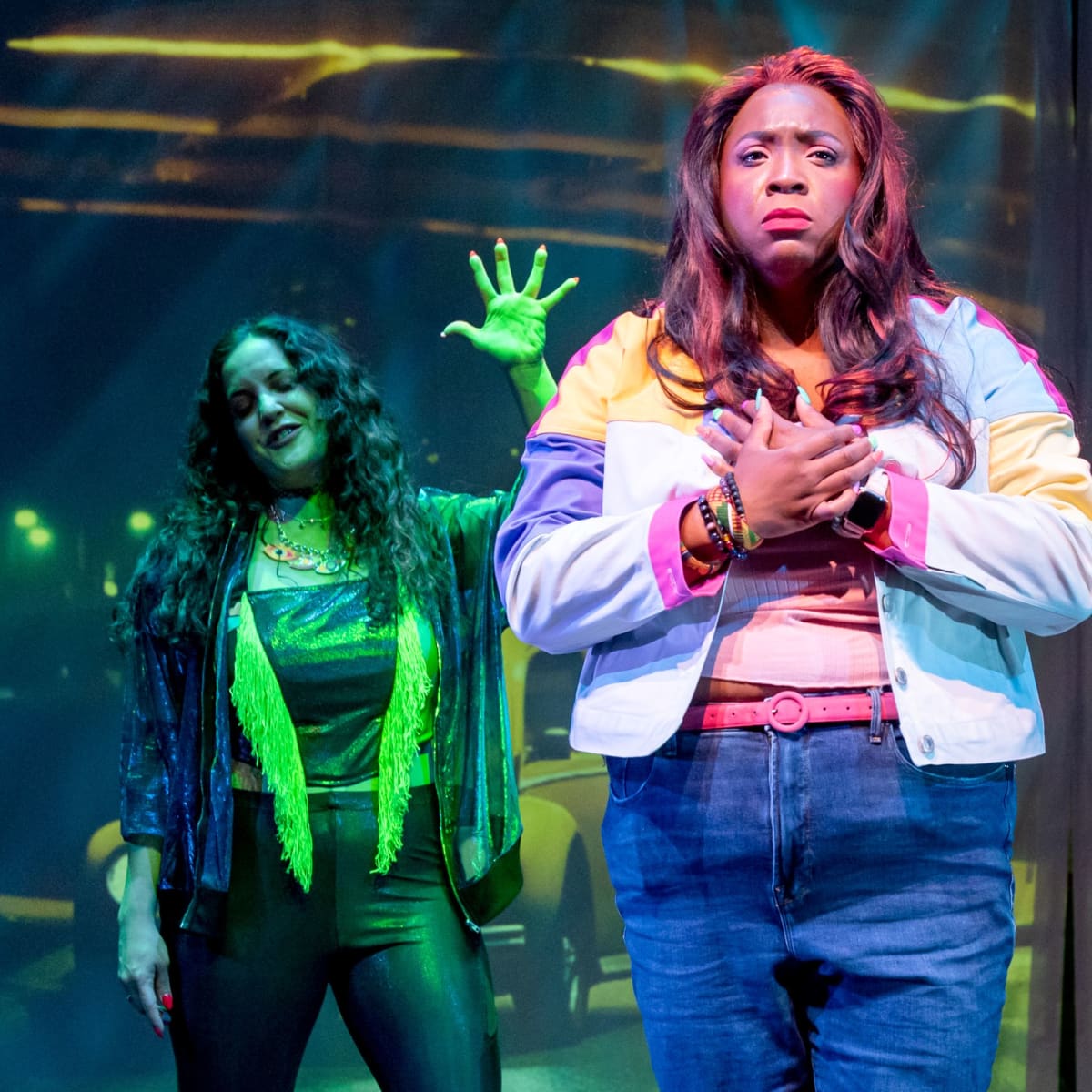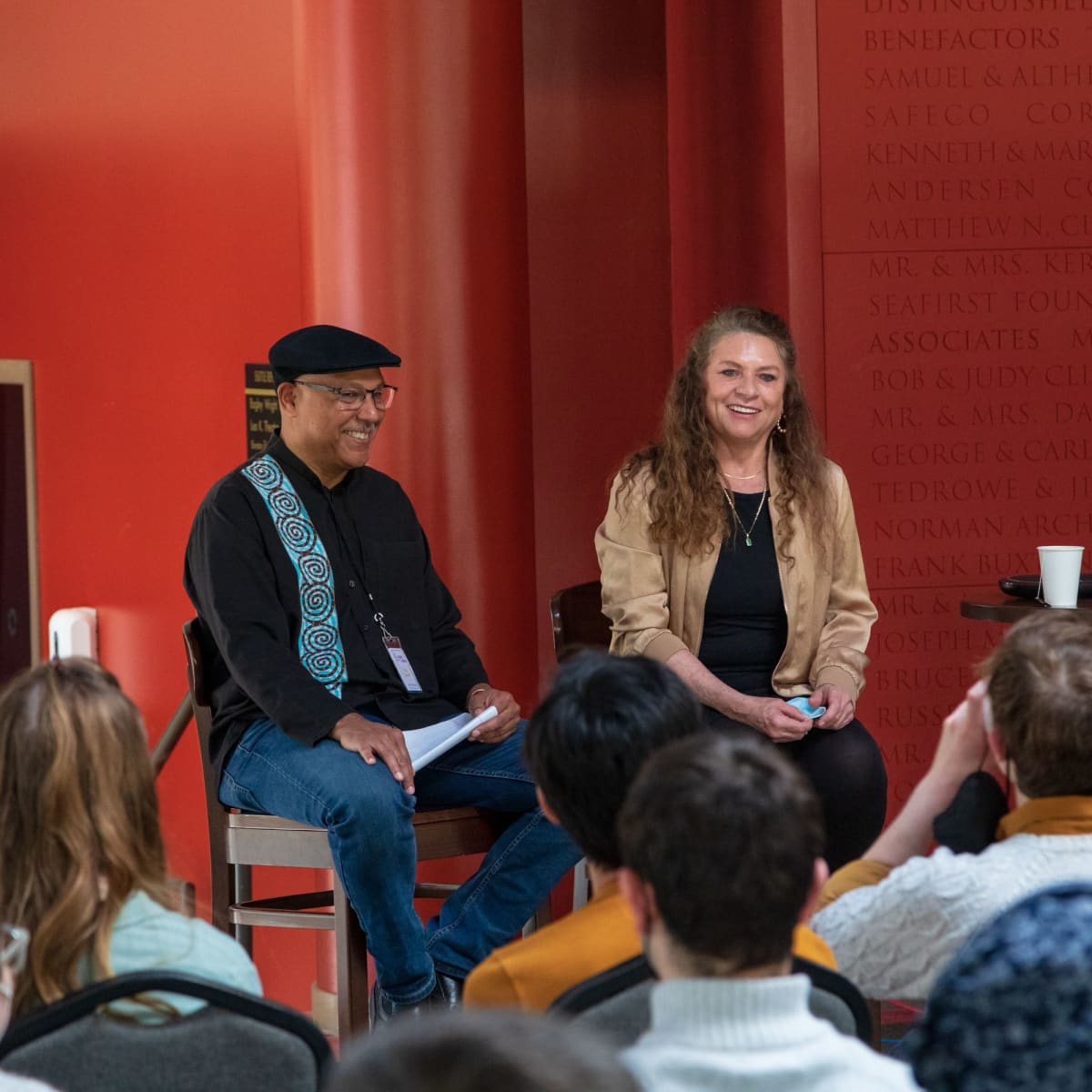Beyond the Stage
Comedy as Resistance
“We wash his ears so that he will not hear people lecture him on what should be considered racist or offensive when they themselves have only a minimal understanding of how uncensored humor borne from trauma is actually beneficial to community healing!” —Irma, Between Two Knees
Years ago, there was a study, maybe it was done at Princeton? Maybe it was Harvard? Yale? University of Phoenix? Anyway. There was a study. It’s likely that the writer of this section didn’t read the study but simply read a Yahoo! news article about it, but that’s not what’s important. Anyway. The study.
So. They took a bunch of people to the movies. One group saw a movie about something sad and tragic. It was something about injustice, and it was, like, really tragic. Probably had some white guy hero or something. The other group saw a movie about the same sad, tragic injustice—but this one was a comedy. Afterwards the folks running the study talked to each group. The ones who saw the sad movie just felt sad and wanted to go home and be sad and eat some comfort food like chips or cookies or leftover pasta. The ones who saw the comedy felt energized—like they had to do something to change the situation. They started GoFundMes and petitions and ran off to serve in the diplomacy corps and stuff like that. They might have been stress eating, but they also wanted to save the world.
That’s the power of comedy.
For many years in the American theater, new comedies have struggled to find their place. The decline of the development and production of new comedies coincides with a shrinking of the audiences for theater, but it’s unclear if Princeton or Harvard or Yale or the University of Phoenix has done a study on this. Causation. Causality. All that.
Good comedy is inherently dangerous. It is challenging; it will cause discomfort or offense to make its point. What we are reclaiming here is the idea of comedy as resistance. When we look at Aristophanes’ Lysistrata or Molière’s Tartuffe or jump into the movies, like Mel Brooks and Richard Pryor’s Blazing Saddles, we can see how comedy has been used to skewer warmongers or religious hypocrites or racism or so many other things worthy of skewering. The 1491s entered this continuum with their sketch work, and through this play and their various television projects, including the wildly successful “Reservation Dogs.” These works, and Between Two Knees, in particular, are a reclamation.
It’s not that comedy can’t simply be fun, but Between Two Knees is a version of comedy that takes back power which has been lost or stolen. It is a way of looking right in the eyes of the people who tried to kill you and laughing at them. To use humor as a weapon to defuse and disarm, sure, but mostly to seize back whatever power you can from those who want you to be quiet or gone. It is an act of defiance. It declares for those who have survived, who are the children and grandchildren of survivors, who survive and thrive in a culture that will not be silenced—it declares a state of being alive, of living-ness. It declares, “We are still here.” We are shaped by our tragedies, and we must face our tragedies, but comedy reminds us that we are more than our tragedies.
Laugh. Really what it really comes down to is:
Do you want to save the world?
“...it's ok! We're gonna make this fun. We're gonna talk about war and genocide and PTSD and molestation. So it's ok to laugh.” —Larry, Between Two Knees





